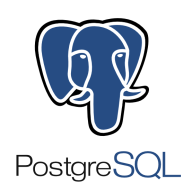

PostgreSQL and Elasticsearch compete in the database and search engine markets respectively, addressing versatile data management needs. In terms of features, PostgreSQL offers extensive database functionalities, while Elasticsearch excels in search capabilities, making them leaders in their domains for specific use cases.
Features: PostgreSQL includes full SQL compliance, support for various programming languages, and robust documentation. It is known for write-intensive task scalability and extensibility. Elasticsearch, on the other hand, provides real-time search capabilities, is optimized for handling extensive text-based data, and integrates well with other tools for data indexing and search.
Room for Improvement: PostgreSQL could improve its read-only query performance and add SQL features like 'INSERT IGNORE' to compete with NoSQL in handling large data volumes. Elasticsearch faces challenges in usability and data management over large indices. Enhancing its machine learning integration and adopting more flexible licensing could enhance its enterprise appeal.
Ease of Deployment and Customer Service: Both PostgreSQL and Elasticsearch offer on-premises and cloud deployment options. PostgreSQL provides broader hybrid cloud deployment support, whereas Elasticsearch sees frequent implementation in both private and public cloud environments. Community support is rich for both, but PostgreSQL enjoys more commendations for active engagement, unlike Elasticsearch, which could benefit from improved documentation and streamlined support services.
Pricing and ROI: PostgreSQL's open-source nature keeps it free, bringing immediate ROI against commercial rivals like Oracle, reducing costs significantly. Elasticsearch, also open-source, offers paid features for advanced capabilities. It balances skilled support costs with node-based licensing, making it cost-effectively flexible compared to expensive solutions like Splunk, with suitability depending on whether traditional data management or advanced search analytics is the focus.


Elasticsearch is a prominent open-source search and analytics engine known for its scalability, reliability, and straightforward management. It's a favored choice among enterprises for real-time data search, analysis, and visualization. Open-source Elasticsearch is free, offering a comprehensive feature set and scalability. It allows full control over deployments but requires managing and maintaining the infrastructure. On the other hand, Elastic Cloud provides a managed service with features like automated provisioning, high availability, security, and global reach.
Elasticsearch excels in handling time-sensitive data and complex search requirements across large datasets. Its scalability allows it to handle growing data volumes efficiently, maintaining high performance and fast response times. Integrated with Kibana, Elasticsearch enables powerful data visualization, providing real-time insights crucial for data-driven decision-making.
Elastic Cloud reduces operational overhead and improves scalability and performance, though it comes with associated costs. It is available on your preferred cloud provider — AWS, Azure, or Google Cloud. Customers who want to manage the software themselves, whether on public, private, or hybrid cloud, can download the Elastic Stack.
At its core, Elasticsearch is renowned for its full-text search capabilities, capable of performing complex queries and supporting features like fuzzy matching and auto-complete.
Peer reviews from various professionals highlight its strengths and weaknesses. Pros include its detection and correlation features, flexibility, cloud-readiness, extensibility, and efficient search capabilities. However, users have noted challenges like steep learning curves, data analysis limitations, and integration complexities. The platform is generally viewed as stable and scalable, with varying degrees of satisfaction regarding its usability and feature set.
In summary, Elasticsearch stands out for its high-speed search, scalability, and versatile analytics, making it a go-to solution for organizations managing large datasets. Its adaptability to different enterprise needs, robust community support, and continuous development keep it at the forefront of enterprise search and analytics solutions. However, potential users should be aware of its learning curve and the need for skilled personnel for optimization.
PostgreSQL is a versatile and reliable database management system commonly used for web development, data analysis, and building scalable databases.
It offers advanced features like indexing, replication, and transaction management. Users appreciate its flexibility, performance, and ability to handle large amounts of data efficiently. Its robustness, scalability, and support for complex queries make it highly valuable.
Additionally, PostgreSQL's extensibility, flexibility, community support, and frequent updates contribute to its ongoing improvement and stability.
We monitor all Vector Databases reviews to prevent fraudulent reviews and keep review quality high. We do not post reviews by company employees or direct competitors. We validate each review for authenticity via cross-reference with LinkedIn, and personal follow-up with the reviewer when necessary.